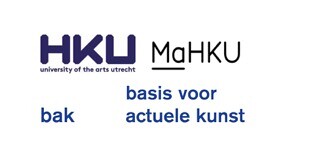The publication To Seminar—with a contextualizing introduction by Steven Henry Madoff—presents a variety of inspiring reflections and perspectives on Roland Barthes’ seminal essay “To the Seminar.” It is the conclusion in print to an exhibition that evolved—through a series of performative and discursive public meetings—and took place at BAK, basis voor actuele kunst, in Utrecht in spring 2017.
Roland Barthes’ essay “To the Seminar” (1974) argues that a seminar is characterized by a series of indirect triangular relationships as flexible links between institution, transference, and text. These three components ceaselessly complement one another and therefore keep the dynamics and the plurality as “unpredictable rhythms” going. However, as soon as these indirect triangular relationships start taking more direct forms, there is a serious risk that one of the corner points (institution, transference, or text) becomes dominant, which could lead to a narrow focus on “knowledge production,” “community,” or “method.”
This situation is very characteristic for the current art school curriculum: the dogmatic research jargon and the academic illusion of a “community of practice” both effectuate a strong stress on nouns such as knowledge and method. To break the deadlock of institutional instrumentalization, updating Barthes’ understanding of “seminar” as a verb seems to be surprisingly relevant for our times.
This was precisely the aim of the project To Seminar at BAK. The starting point was a series of in-depth talks in which curator Henk Slager and artists Tiong Ang, Falke Pisano & Camila Sposati, and Sara van der Heide (Sara Sejin Chang) discussed the possibility of a contemporary interpretation and deployment of Barthes’ understanding of “seminar” as both a concept and a practice: an approach that demands a dynamic re-thinking of the existing educational triangle of institution, transference, and text.
In continuation of these talks the artists were invited to take one of the three perspectives as their point of departure, with due consideration for the oscillating relationship with the other two perspectives. With this in mind Sara Sejin Chang (institution), Tiong Ang (transference), Falke Pisano and Camila Sposati (text) all realized a clear proposition in the form of a new work for the exhibition. In consultation with the artists a plan for a multi-usable stage on the ground floor was developed (a stage as well as a space for workshops, discussions, displays, and performances). All of this in line with Barthes’ typification: “the stage on which horizontal transferences will be established.”
For the sake of the activation proposed by the project—“seminar as a verb”—three other artists were invited to develop a number of intensive workshops related to the three perspectives: Job Koelewijn (text), René Francisco (transference), and Inci Eviner (institution). During the exhibition period the outcomes of the various workshops—with Utrecht master students participating—were integrated in the display at special presentation moments. And finally a further three artists were invited to provide a contextualizing proposition: Mick Wilson (text), Jeremiah Day (transference), and Sarah Pierce (institution).
In addition, the program included a number of public gatherings in which the above projects were further articulated and contextualized. Three different panels were organized that departed from one of the three seminar constituents: Institution, Transference, and Text. These meetings were attended by the participating artists as well as theorists such as Jan Verwoert and Marquard Smith. The panels were moderated by core tutors of various Dutch master programs: Marijke Hoogenboom, Vivian Sky Rehberg, and Margo Slomp. As an extension of these panels the moderators wrote a critical reflection on the issues debated and the insights discussed. These reports formed the starting point for the epilogical presentation by Irit Rogoff who, in a discussion with Kitty Zijlmans, rounded off the public program.
It was not the project’s ambition to provide definitive answers to the questions that were raised. Above all it aimed to encourage an ongoing series of questions, partially in the spirit of Barthes’ seminar-philosophy—characterized by optimistic uncertainty—but also taking it further than his somewhat dated utopian perspective without losing sight of the future.
Editor: Henk Slager; Final Editor: Annette W. Balkema; Design: Joris Kritis.
More information here.
The project To Seminar has been made possible through the collaboration between BAK and MaHKU (HKU University of the Arts, Utrecht).


